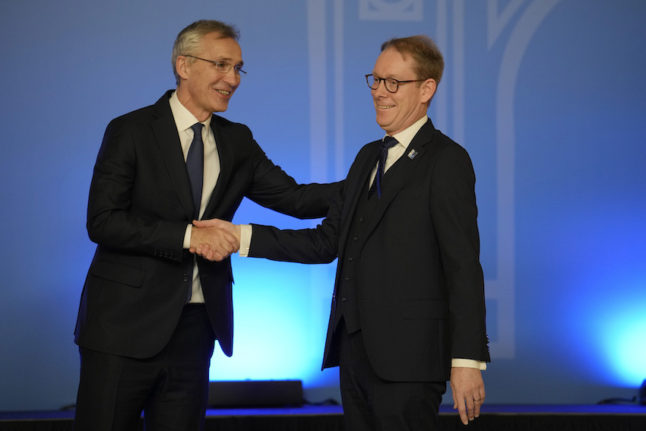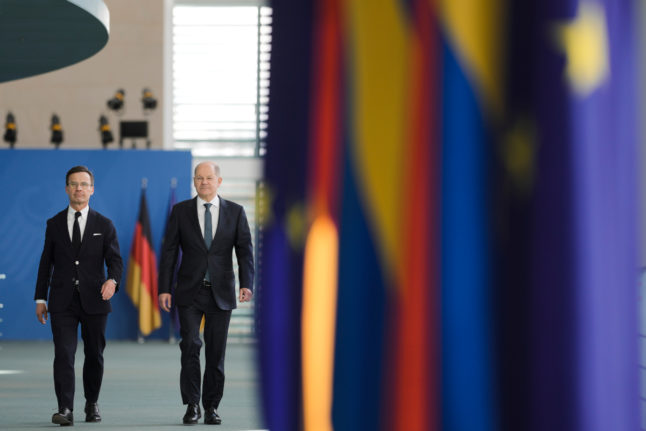“They have an election in the early summer and domestic politics plays a role in every country,” Kristersson said on Tuesday, shortly before the foreign ministers of Sweden, Finland and Turkey were due to meet in Bucharest.
“We have had a very good dialogue recently,” Kristersson said, pointing to talks between the two sides in Stockholm on Friday. “This was the first time Turkey clearly expressed a view that Sweden is really delivering and carrying out what was agreed between Sweden, Finland and Turkey. That was a good sign.”
Sweden’s prime minister Tobias Billström was due to meet his Turkish counterpart Mevlüt Cavusoglu alongside Finland’s foreign minister Pekka Haavisto on Tuesday at a Nato meeting in Bucharest, Romania.
Ahead of the meeting Billström sought to downplay expectations.
“We are going to have an exchange of opinions, but when it comes down to it, this is about living up to the tripartite agreement which was signed at the Nato summit in Madrid between Sweden, Finland and Turkey,” he said as he arrived at the meeting. “We believe that we have come a long way towards fulfilling the points in the agreement.”
The summit was the first Nato event attended by a Swedish foreign minister leading the delegation of a so-called ‘invitee’ nation.
“I’m extremely happy to be here and that I believe it will be a productive meeting,” Billström said.



 Please whitelist us to continue reading.
Please whitelist us to continue reading.
Member comments